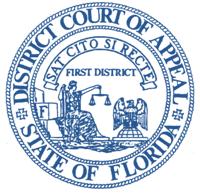 The Florida First District Court of Appeal recently affirmed a monetary judgment against a borrower in a follow up action to collect the balance owed on a note secured by a mortgage. The follow up action was consolidated with a prior foreclosure action in which the court reserved jurisdiction to enter a deficiency judgment.
The Florida First District Court of Appeal recently affirmed a monetary judgment against a borrower in a follow up action to collect the balance owed on a note secured by a mortgage. The follow up action was consolidated with a prior foreclosure action in which the court reserved jurisdiction to enter a deficiency judgment.
A copy of the opinion is available at: https://edca.1dca.org/DCADocs/2014/0930/140930_DC05_05012015_101049_i.pdf.
The plaintiff bank sued to foreclose its mortgage on the borrower’s property in 2008. The complaint also requested a deficiency judgment.
The trial court entered summary judgment against the borrower, reserving jurisdiction to enter a deficiency judgment. The plaintiff mortgagee was the highest bidder at the foreclosure sale and the clerk issued a certificate of title shortly thereafter.
In January 2010, the mortgagee filed a second action at law for damages under the promissory note. The borrower moved to dismiss, arguing that the court lacked jurisdiction due to the foreclosure judge’s reservation of jurisdiction in the foreclosure judgment, and due to the fact that the mortgagee’s foreclosure complaint included a request for a deficiency judgment.
The mortgagee moved to consolidate the two cases, which was granted. The borrower’s motion to dismiss was later denied. After a bench trial of the consolidated cases, the court in the consolidated action entered judgment for the mortgagee, minus a $350,000 credit for the value of the property at the time of the foreclosure sale, resulting in a balance owed of just over $619,000.
The borrower appealed, arguing that the follow up action for damages was precluded by prayer for a deficiency in the foreclosure complaint, and by the foreclosure court’s reservation of jurisdiction to enter a deficiency judgment.
On appeal, the Appellate Court examined section 702.06, Florida Statutes, which governs the right to recover deficiency judgment.
The Appellate Court reviewed the Florida Supreme Court’s long line of cases interpreting the statute, which established the rule that if a deficiency judgment is pled in the foreclosure action, but not ruled upon, the creditor may seek to recover the balance owed after crediting the proceeds of sale through an action at law on the note.
However, Appellate Court also noted that the prior case law also holds that, where a deficiency judgment was pled in the foreclosure complaint and the trial court reserved jurisdiction to enter a deficiency, the creditor could not pursue a later, separate action at law on the note.
The Appellate Court distinguished the case at bar from the situation where a deficiency judgment was pled in the foreclosure complaint and the trial court reserved jurisdiction to enter a deficiency, noting that in the case at bar, the trial court in the foreclosure action (into which the follow up action on the note was consolidated) retained jurisdiction by virtue of the consolidation of the two cases and the borrower did not oppose consolidation. Important to the Appellate Court was the fact that the trial judge treated the case as a deficiency proceeding rather than an action at law.
The Appellate Court concluded that the trial court did not err in determining that the property was worth $350,000 at the time of the foreclosure sale, under Florida law. According to the Appellate Court, the correct formula to calculate a deficiency judgment is the total debt reflected in the final judgment of foreclosure minus the fair market value of the property as of the date of the foreclosure sale.
Finally, the Appellate Court found that any procedural error by the trial judge was harmless error, because the borrower made no showing on appeal how he was prejudiced or harmed by how the consolidated cases proceeded or the manner in which the trial court calculated the amount owed. Accordingly, the final judgment below was affirmed.

